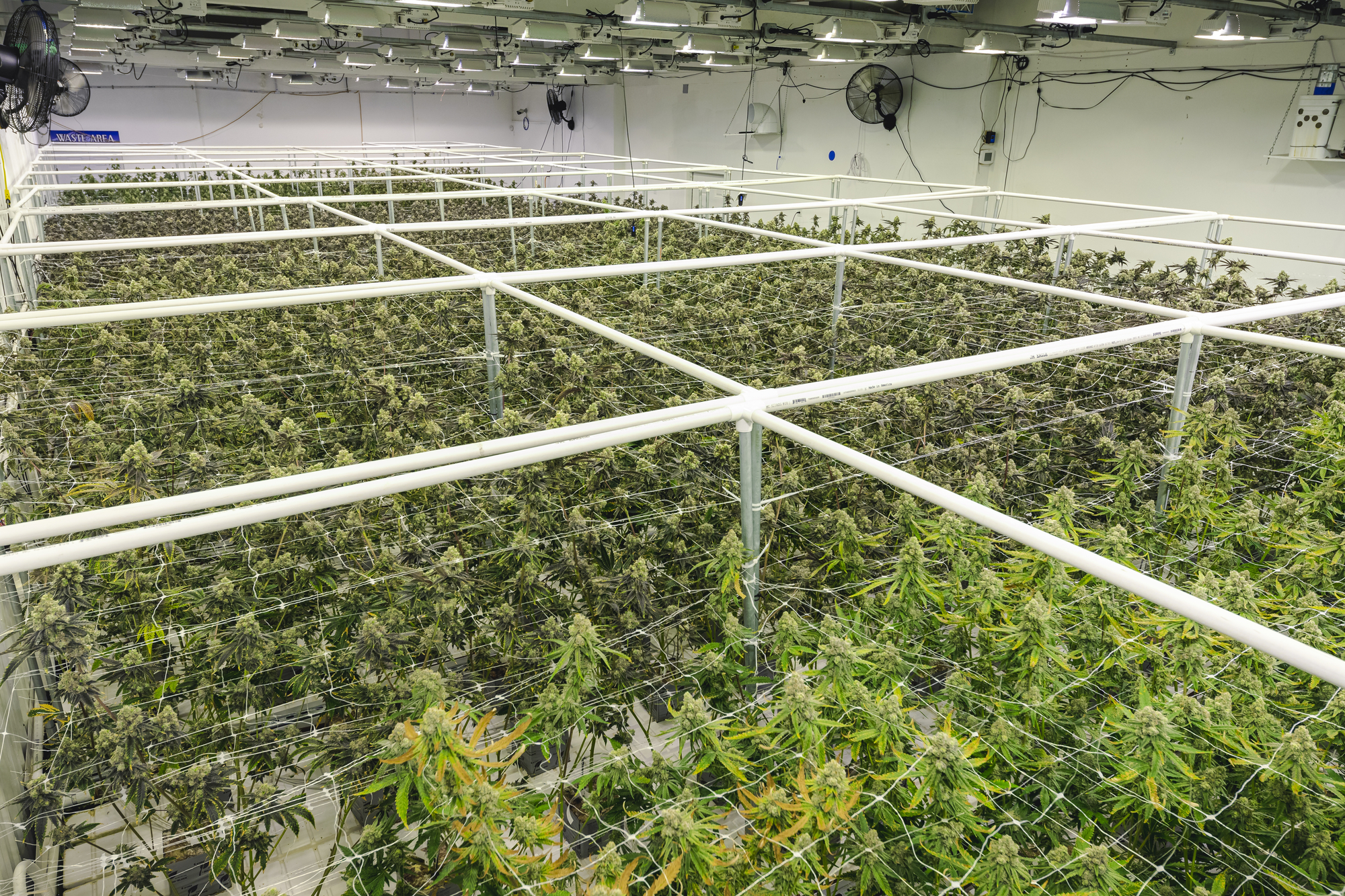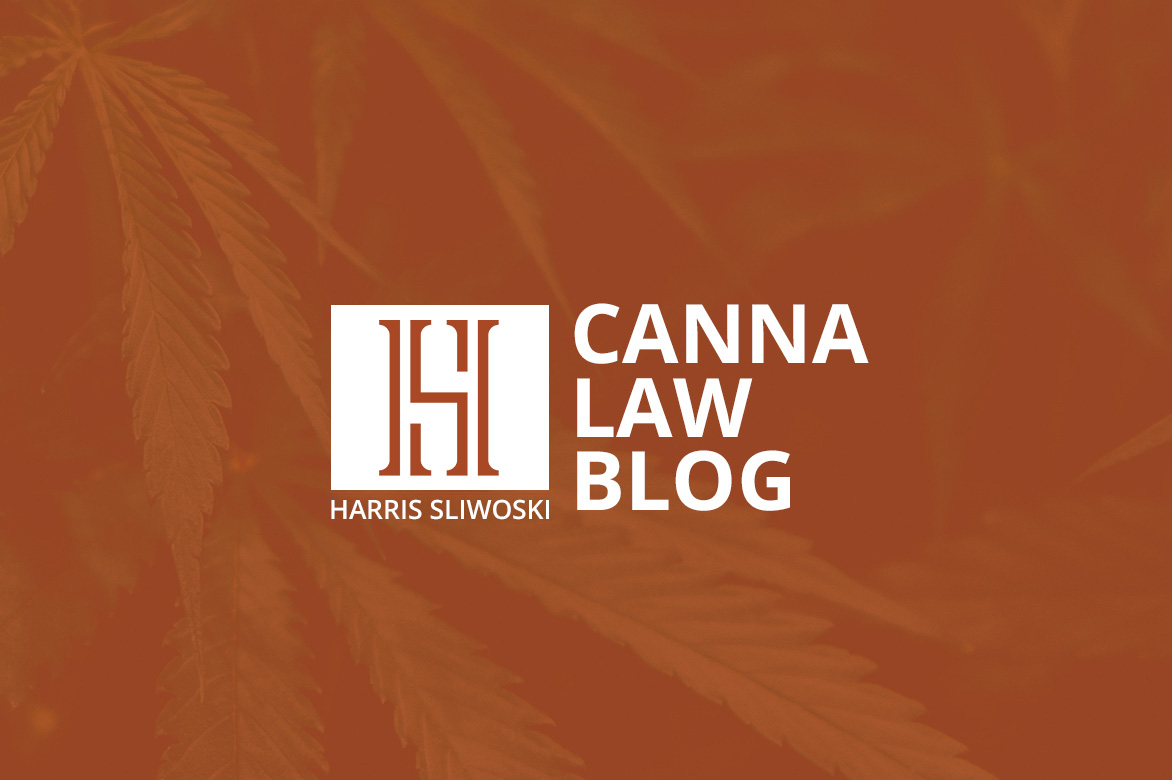Get in Touch with Our Cannabis Law Team
Get started by filling out the form, or call 1-888-330-0010 to schedule an initial consultation.
"*" indicates required fields



A growing marketplace. Higher profit potential as legalization increases. There are many reasons to consider a cannabis manufacturing business. There are also many reasons to have the right legal partner by your side as you set out. Count on Harris Sliwoski for cannabis manufacturing advice, industry legal planning, regulatory support, corporate guidance, and compliance strategies.
Contact UsWhatever your cannabis-related product, we can work with you to design and implement an efficient legal strategy to achieve your business goals.
Whether you manufacture vape pens, stash products, rolling trays, tech products or apparel, we are committed to helping you thrive in an increasingly competitive global ancillary market. Our attorneys understand the changing needs of today’s international manufacturers because we have spent decades advising them. For more than a decade our China Law Blog has been the leading source for how to manufacture in China and overseas.

We offer comprehensive legal support to companies from all over the world that seek to manufacture overseas. Our international manufacturing lawyers have helped companies with their legal manufacturing needs in all of the major manufacturing centers in Asia, Europe and Latin America, focusing mostly on the following:
If you manufacture overseas or you are thinking about taking the next big step, contact us today.

Cannabis manufacturers worldwide rely on Harris Sliwoski for legal guidance because:


Beyond advising individual businesses, our cannabis attorneys are committed to fortifying, defending, and building credibility for the industry as a whole. Harris Sliwoski’s cannabis business lawyers are more than legal strategists—they are thought leaders: forward-thinking bloggers, educators, writers, and speakers.
They regularly write articles for legal journals and frequently post to our acclaimed and widely followed Canna Law Blog. We speak to business and trade groups, academic institutions, and government bodies on a variety of cannabis legal issues, and our cannabis lawyers are frequently quoted by global, national, and local media outlets. We also have compiled (and are forever adding to) a Cannabis Glossary, to help with industry terminology.
View BlogGet started by filling out the form, or call 1-888-330-0010 to schedule an initial consultation.
"*" indicates required fields

“Harris Sliwoski expertly guided us through the formation of our company. They continue to assist with necessary registrations and compliance with numerous regulations. They were able to promptly answer all our many questions and provide understandable options, explanations and practical advice. We expect to continue to use Harris Sliwoski on a regular basis as our company expands. They were also able to introduce us other professional experts. We would not hesitate to recommend Harris Sliwoski to any companies in need of legal advice.”
This law firm was a huge help as our company went through the process of commercial licensing in the California cannabis industry. They have helped us with a variety of legal issues in a timely fashion, while clearly communicating with us throughout the process. Everyone we’ve worked with at Harris Sliwoski is an expert in their field and we have always felt that we were in good hands through our legal representation.
Legal stuff is always scary. And I’ve had to play offense a couple times, begrudgingly. To have Harris Sliwoski have my back? It made things a lot less prickly. They quickly walked me through my options, and were refreshingly consistent in their communications, timing and billing. I’ve been lucky to stay out of the legal side of things my whole career, thankfully. When things went a little wrong, Harris Sliwoski quickly made things right.
I am impressed with this law firm. They answered all my questions regarding cannabis businesses and the California cannabis framework, and they have helped me with a variety of legal issues in a timely fashion, while always clearly communicating with us throughout the process. They also redirected me to other quality people for my business needs. Everyone I worked with at Harris Sliwoski is an expert in their field, and I was in good hands throughout my legal representation.
I have been working with the lawyers at Harris Sliwoski for more than 20 years both as a business owner and as an executive at a large east-coast health system and that is because they have always efficiently provided high level and clear international law advice. Most recently, Harris Sliwoski provided legal support on many matters related to procuring medical products worldwide. Their support was particularly helpful to during the onset of COVID, when there was a big need for securing PPE quickly, all while navigating complicated international and domestic legal requirements. Harris Sliwoski’s team of international lawyers helped by conducting rapid-fire due diligence on potential suppliers, navigating the legal logistics for getting product from overseas and through U.S. customs, and drafting contracts to protect against various sorts of horribles. They did this by essentially providing what amounted to 24/7 service. I cannot recommend them highly enough.
Harris Sliwoski has represented our company in the legal cannabis industry for years. Harris Sliwoski has advised us in a wide variety of legal matters, and they are truly experts in their field. I would highly recommend Harris Sliwoski to anyone with questions about cannabis law, or any legal matters. They have been great for our Company, and will continue to guide us as our industry evolves
You won’t find a better partner than Harris Sliwoski when trying to navigate the complex world of healthcare regulations. They not only give sound and reliable legal advice, but they are also very responsive and are able to guide you in a way that helps you reach your business objectives as well.
When we started the process of building a ‘seed to sale’ cannabis company in Oregon, we saw the need for expert legal counsel. The cannabis sector is fraught with potential peril at every turn, and we wanted the best legal advice we could find. After talking to several firms and individuals, we feel extremely fortunate to have chosen Harris Sliwoski as our legal counsel.
We use Harris Sliwoski on all our international legal matters, including on our international litigation matters. We have over the last few years been involved in a couple big international legal disputes and Harris Sliwoski’s international dispute resolution team provided us with expert legal assistance on both matters. They were always very careful to explain to us what they were doing and why and what their actions would likely cost us in legal fees. Most importantly, we did extremely well on both cases and I have no doubt Harris Sliwoski was a big factor in that.
We have used Harris Sliwoski for legal help related to our international manufacturing. The lawyers with whom I worked had extensive familiarity with the international legal issues involved in our various projects and offered us key insights. I particularly appreciated how they always quickly and efficiently do what they say they will do and always within their cost estimates.
The answers to common questions about cannabis manufacturing law appear below.
As a heavily regulated industry, cannabis manufacturing license requirements differ by jurisdiction and often by specific operations. For example, California issues separate licenses for companies that only package and label products versus businesses conducting infusion. Canada factors processing volume into its licensing, with micro-processors having a different permit than standard ones.
Your Harris Sliwoski cannabis lawyer will help you determine the right license type for your needs and location. They’ll also guide you through the application submission processes.
Generally speaking, each manufacturing facility must have its own permit from the jurisdictions where it operates. That may include licenses from the state and local authorities in the U.S., where cannabis remains illegal at the federal level. Other countries typically have national government involvement, and the laws vary widely. There are also complex nuances for crossing borders. Our team will help you identify which laws and licensing requirements apply.
Good Manufacturing Practices (GMP) is a framework for ensuring product quality and safety during the cannabis manufacturing process. Regulatory authorities require compliance with GMP for many industries, such as pharmaceuticals, food and beverages. Companies typically prove they follow the laws through a third-party audit by an accredited certification firm.
Cannabis manufacturers in the U.S. are not federally required to get GMP-certified, but some states or localities may mandate it. We’ll review your unique needs and confirm if your facility must achieve certification.